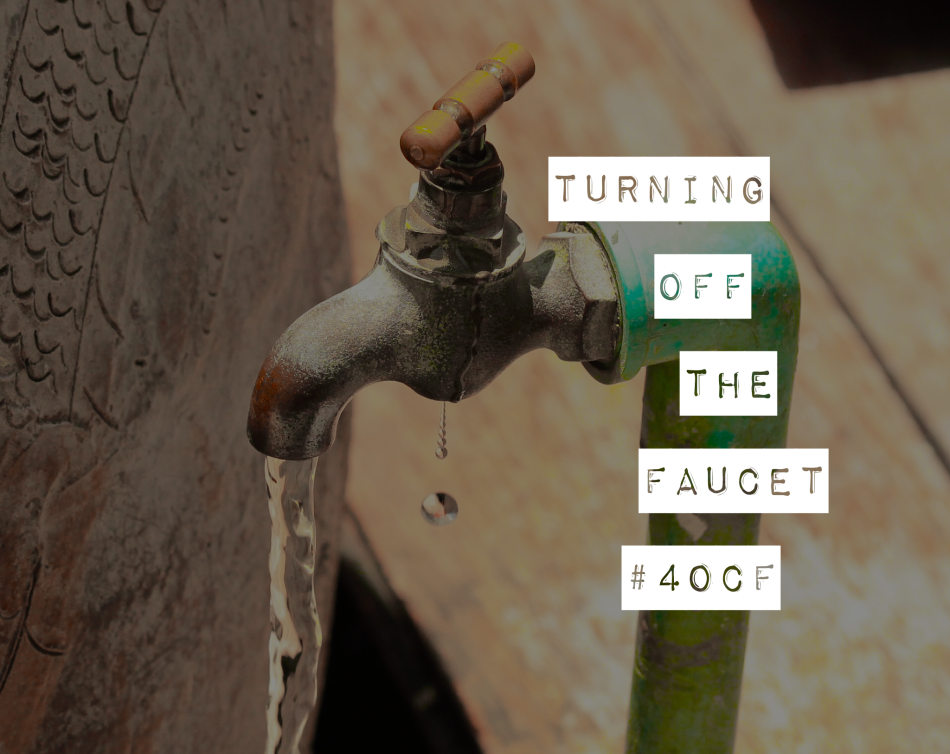The other day I was trying to teach my son about turning the faucet off while he was brushing his teeth.
I told him that even dripping water means wasted water, which is why I am so desperately trying to find a plumber. By giving him this example, I tried to teach him the value of water and the amount of water he wastes–I tried to explain to him that the water that pours down the sink while he brushes is wasted. It is fairly difficult for a four-year-old to understand this concept. In fact, there are many adults who still wastewater as they are brushing. It became hard to explain to him that you only need a little bit of water to wet the toothbrush, followed by some more water at the end of your brushing to rinse your toothbrush and your mouth.
Even adults sometimes stand there, watching as water pours from the faucet down the sink while occupied with brushing.
It seems as if education right now is just like the faucet. We are inundated daily with a flow of messages, directives, resources, and mandates, as we stand idly by, trying to figure out what is meaningful and necessary and how much to use. Should we dip our toothbrush in a little bit? Or do we save some of the water in a glass for when we are finished? Much like my son’s dilemma, it is hard to figure out how much to let go, and how much to use.
It is not possible to use all of the water that comes pouring from the faucet, just as it’s not possible to absorb all of the information that we are presented on a daily basis.
The best that we can do as educators is to simply turn off the faucet, or at least, turn it down. We have to learn how to manage that flow of information, taking in what’s important, and filtering what is unnecessary.
Below are several strategies for turning off (or at least turning down) the faucet:
Compartmentalize. Divide all of your roles and tasks. Schedule time during your day to do specific work. Complete paperwork and administrative tasks before the school day begins. Devote hours during the day to students. Find time after school to contact and inform parents of student progress. Once you leave school, devote evening hours to family and friends. Be sure to leave time for all that is important, even if it means prioritizing certain tasks.
Organize. Separate information into categories. Filter email messages according to their categories. When inundated with paperwork, be sure to file into multiple piles. Find a set time to answer emails a couple of times during the day. When you read an email, decide whether to answer it immediately, or file it in the proper folder. Don’t waste time rereading emails. Make sure that students are organized within the classroom.
Focus on one goal. At the beginning of the year, determine what your one goal is for the year. Use this goal to guide your decision making process, and to manage the flow of information. Ask yourself, “How does this information relate to our goal?” Decide which information or tasks are relevant to the goal, and process accordingly.
Disconnect. As a connected educator, I sometimes feel like I am being pulled in too many directions. There are school and district priorities, emails to answer, classrooms to visit, Twitter chats and Voxer discussions to participate in… The list goes on and on. When I get this feeling, it is often important for me to disconnect from some of the extraneous activities that I participate in. Spend some time in isolation. Complete only the most time-sensitive tasks. Take a break from social media. Find time for yourself.
When the faucet is “pouring water” as you try to figure out what to do, it is important to figure out strategies for turning off (or minimizing) the flow of tasks and information. Give yourself permission to turn the water off. Determine which systems and workflows are best for you. Most of all, realize that you can’t respond to every piece of information. Accepting that will allow you to keep your sanity while the water keeps running.
Rich



Comments are closed.